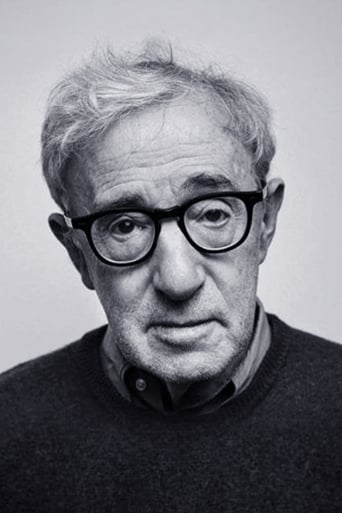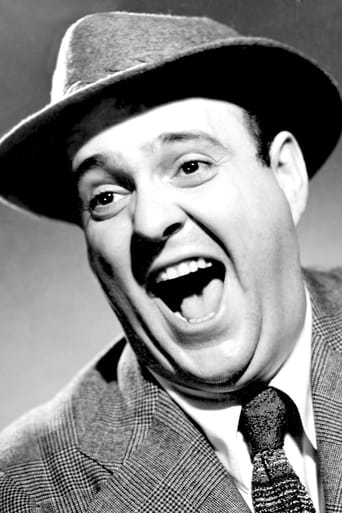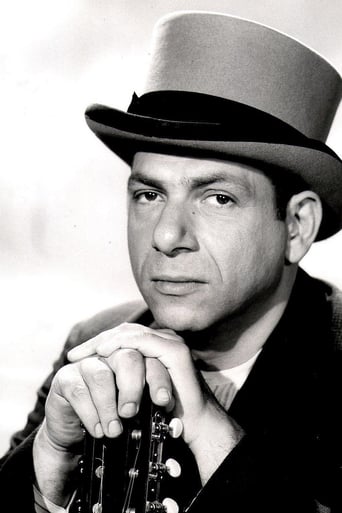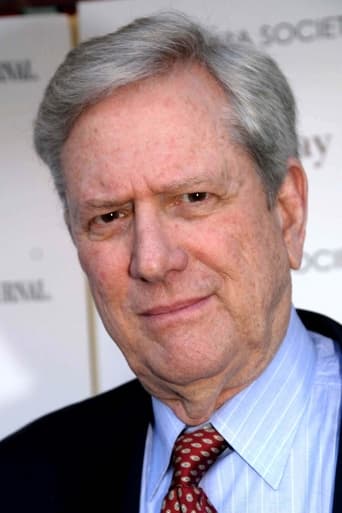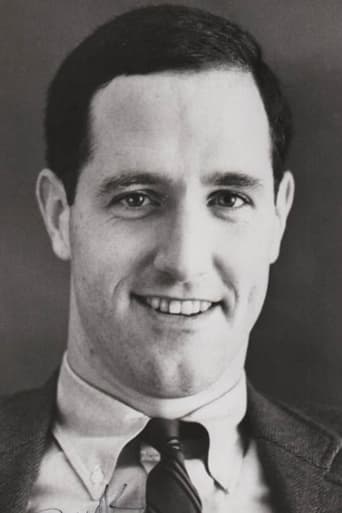Stometer
Save your money for something good and enjoyable
Arianna Moses
Let me be very fair here, this is not the best movie in my opinion. But, this movie is fun, it has purpose and is very enjoyable to watch.
Kien Navarro
Exactly the movie you think it is, but not the movie you want it to be.
Juana
what a terribly boring film. I'm sorry but this is absolutely not deserving of best picture and will be forgotten quickly. Entertaining and engaging cinema? No. Nothing performances with flat faces and mistaking silence for subtlety.
deschreiber
It's important to tell the story of the blacklist of the 1950s. It may slow down a recurrence, although Donald Trump is showing how effective it is to play on fears and hatred, and a repeat of the Red Scare can easily show up again as a Muslim Scare.However, I was disappointed to see a ridiculous love story being added to the mix for no particular reason. It added nothing, distracted from the theme, and seemed to exist only to appease the popcorn-chewing part of the audience. Woody Allen playing the romantic lead was completely nuts. A beautiful girl would never show interest in him, not only because of his looks but also because of his nervous, semi-spastic demeanour, his lack of confidence, his whiny voice, his patent cowardice. To see the girl turning to kiss him was slightly disgusting but mostly preposterous. Not in one scene, not in one moment, did he seem like she would find him attractive. (Don't give me that, "She was attracted to what she thought was his brilliance as a writer." She would also want him to be charming or appealing in some way on a personal level. On a personal level he doesn't even show a sign of the brilliance that is supposed to be in his writing.)Zero Mostel showed an unexpected weakness. He is brilliant in exaggeratedly insincere emotions, as in the manipulative slave in A Funny Thing Happened on the Way to the Forum. In this movie, when he was pleading with the agent responsible for checking his "reliability," begging not to be put on a black list, showing photos of his children, saying he was on his hands and knees, and so on, none of it sounded sincere. It all sounded like a schtick that he would soon pull out of, only to fall into a different one.
laskinner-124-924636
This movie was criticized when it came out because of it's humor and supposedly too lighthearted approach to blacklisting. But the director, writer and many of the actors were black listed and I think they knew it was a better way to approach the material than some turgid drama about blacklisting. Zero Mostel gives simply one of the most extraordinary performances on film in this movie. He runs the gamut and it is a crime he didn't win the supporting Oscar for this film. Woody Allen has never been better as an actor. The writer and director expose the black listing system in a way that makes you understand the human aspect of it. The acting throughout is convincing and in Zero Mostel's case, heartbreaking. His performance is reason enough to see this film. It is tremendous in it's humor, pathos and skill. You will witness many great character performances in this movie and the patina of an era long gone but not forgotten in this country. You will find familiar faces in this film which draws on many of the talents that populated the era of blacklisting.
secondtake
The Front (1976)Deeply serious and sometimes hilarious, Martin Ritt makes an improbable critique of McCarthyism using several once-blacklisted actors and Woody Allen, then at one of his peaks of fame.Allen, though, is limited by his role, and seems to be Woody Allen rather than one of his more exaggerated characters. Some of his lines seem written by him, rather than just for him, which would be appropriate (people writing under assumed names). The real star of the show is Zero Mostel as a blacklisted comic actor. He plays it straight and zany with equal power, a real joy.Most of all is the point--that we can't forget how insidious this kind of spying and lying and persecution can get, so that even well meaning people go along as a matter of fear, or expedience, or just laziness. We'd like to think we wouldn't fall for a new McCarthy, but I think we very well might, in some new form, and sooner than we'd like. Movies like this (and Good Night and Good Luck) might forestall it. While not a work of terrible originality or genius, it's completely enjoyable and worth the time.
Merwyn Grote
The McCarthy blacklisting era was a most peculiar time in America. On the one hand you had conservatives who felt fully justified in defending the rights and freedoms of Americans by supporting an ad hoc system that stripped some Americans of their rights and freedoms without any sort of due process or legal avenues. On the other hand, you had liberals who defended the rights and freedoms of those who advocated a political system that by its nature would strip Americans of their rights and freedoms. And there were quite a few people who were trapped in between, forced to choose either their freedom to think for themselves or their right to live their lives in peace.The only people not greatly effected it seems were the source of the confrontation, the communists. Though few in number and largely ineffectual as a group (at least, in America), they no doubt sat back and amused themselves as the country was being forced into two bitter camps. Had they had any real power within the United States, all the hub-bub about the communist influence might have served a purpose. But in reality it was hysteria over a non-existent threat, or a barely existent one. In hindsight, the panic over the Red Menace seems like the premise for a comic farce.THE FRONT isn't such a farce. Though it does star Woody Allen during his "early, funny" years and it is structured like a comedy, THE FRONT is a drama. It uses the talents of many who were blacklisted –- director Martin Ritt, screenwriter Walter Bernstein, and actors Zero Mostel, Herschel Bernardi, Joshua Shelley and Lloyd Gough -- and it tries to focus on those in the middle who lost their livelihoods and reputations because they were considered "pink," ordinary citizens whose paths crossed those of others who may or may not have been communists. Guilt, or at least proof of it, was irrelevant; the mere suspicion of being a communist sympathizer was enough to deny individuals the right to work in their chosen field, the cost being their careers, their families and even their lives. In the view of the House Un-American Activities Committee, you were either on their side or a threat to the very fiber of the American being. It was mostly played out in the political arena, but as with most politics it seeped into the pop culture. Perhaps because the government had relied so much on the media for propaganda purposes during WWII, the fear of its power was strong.In THE FRONT, Allen plays Howard Prince a part time bookie. When a friend of his, a writer for a network TV show, gets blacklisted, the friend persuades Howard to act as his proxy. The writer will create the scripts for the show, but Howard will submit them under his name, for a cut of the commission. The scam works so well that soon Howard is fronting for several other writers as well –- and Howard's reputation as a prolific and versatile author starts to grow. The complications come when Howard is expected to do on-the-spot rewrites of the material, and when he is suspected of red ties due to his friendship with the real liberal writers. As he sees first hand the dangers of the blacklisting, he also grows a conscience. Not a bad premise for a movie, even a comedy.One would think, with the involvement of those who were scarred by the blacklisting playing such a prominent role in the film, that THE FRONT would pulsate with a certain degree of rage. But it doesn't; the film isn't so much angry as it is wistful. It is not a question of the honesty of the material so much as the quiet feeling of hopelessness that pervades the story. The story unfolds in a slow, deliberate fashion, occasionally sticking in a joke or two, but mostly just reliving the past in a sad monotone. Perhaps it is supposed to be a reflection of the era the film is about, the 1950s, an era of passivity. Or maybe it is a reflection of the era in which the film was made, the 1970s -- after the chaos of the 1960s, maybe McCarthyism had just lost its power to scare. Either way, neither Ritt nor Bernstein inject much passion into the tale. Likewise, the characters lack depth; the bad guys who support the blacklisting are cold and mechanical (heaven forbid they might be acting out of genuine patriotism), while the good guys are either pure and passionate in their left-wing leanings or guileless innocents bewildered by it all. Thoughtful and low-key, THE FRONT is certainly sincere, but it isn't insightful and doesn't carry much of a punch.Even the big finale lacks power; after playing an ineffectual verbal game of cat and mouse with a HUAC subcommittee, Howard drops the "F-bomb" in a moment that is supposed to be shocking. Though it is jarring, it is because it is so pointless as a gesture. Did Ritt and Bernstein really think that uttering the F-word would jolt audiences in 1976? Even now, are we suppose to see such a foolish gesture as an act of courage on Howard's part? It is a key moment in the story and comes off as being just, well, stupid. In the end, Howard ends up going to jail, presumably on contempt of court charges; but is Howard's childish act of defiance really an heroic action? He takes a stand, but doesn't make much of a point. And neither does the movie.


